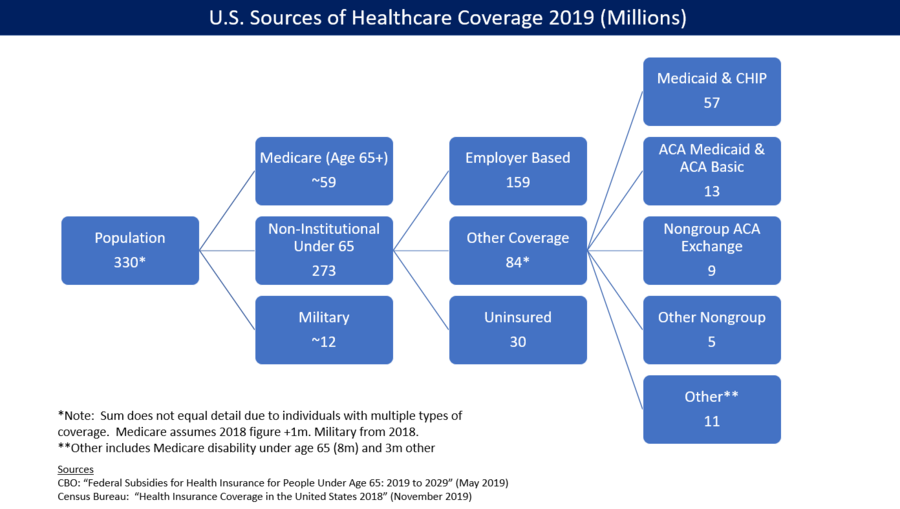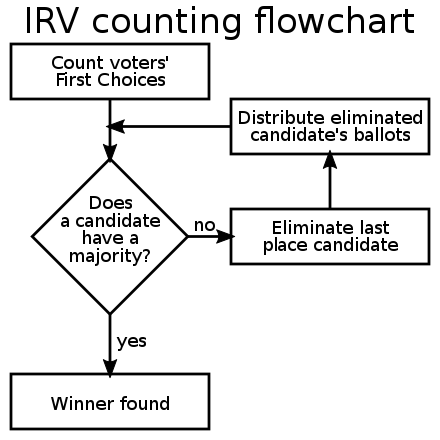
Short-term housing
“Tiny House,’’ by Freeport, Maine-based Deanna Jacome, at the Southern Vermont Arts Center, Manchester, Vt., March 30-July. It’s in the center’s “Spring 2024 Solo Exhibition,’’ part of a longstanding tradition there. Multiple artists working in a variety of media, genres and styles are selected to show their work in rooms and spaces throughout the center’s Yester House.
‘Its wholesome strength’
“View of Manchester, Vermont” (1870), by DeWitt Clinton Boutelle
“In Vermont, wherever you turn, you drink up beauty like rich milk, and feel its wholesome strength seep into your sinews.”
— Sarah N. Cleghorn (1876-1959), in Threescore: The Autobiography of Sarah N. Cleghorn (1936). A resident of Manchester, Vt., she was a poet, novelist and political activist.
Chris Powell: Mutilation is mutilation; social-service industry complains about fiscal ‘guardrails’
Transsexual woman July Schultz displaying her palm with "XY" written on it at an demonstration.
MAN CHESTER, Conn.
What’s the difference between “female genital mutilation” and “gender-affirming care”?
“Female genital mutilation” is an ancient barbaric practice prevailing in some cultures in Africa and the Middle East. Some adherents mistakenly think that Islam requires it. It is committed against minor females and is euphemized as “purification.”
“Gender-affirming care” is the euphemism for sex-change therapy and is a modern barbaric practice associated with politically correct cultures in North America and Western Europe. It is committed against minors of both sexes and involves anatomy-altering drugs and surgery.
Female genital mutilation is prohibited by federal law and 41 states but not by Connecticut, so last week state legislators, 30 civic groups, and victims of the practice announced that they again will try to have it outlawed in the forthcoming session of the General Assembly. Legislators are rushing to endorse the proposal, though following the dubious practice of states that outlaw abortion, the advocates of outlawing female genital mutilation in Connecticut also want the law to criminalize taking a minor out of state for mutilation.
But meanwhile there is no effort in the legislature to prohibit “gender-affirming care” for minors, though Connecticut law presumes that minors lack the judgment to make such serious decisions, prohibiting them from purchasing alcohol, tobacco, and guns and from entering contracts and getting tattoos.
Medical research increasingly connects bad physical and psychological outcomes with “gender-affirming care,” and many who received it as minors come to regret it.
So in their consideration of female genital mutilation, legislators should ask why surgical and chemical mutilation and alteration shouldn’t be forbidden for all minors, delaying such practices to adulthood. What’s bad for the young goose is bad for the young gander as well, regardless of political correctness and however many other genders there are imagined to be.
DON'T WHINE, SPECIFY: Connecticut's social-services industry is complaining about the "fiscal guardrails” that state government has imposed on itself for the last few years at the behest of Gov. Ned Lamont and leaders of both parties in the General Assembly. The “guardrails” function as the limit on state spending that was promised as an apology for the state income tax in 1991 but was never delivered.
The industry has a point. Paid by state government, the industry provides many services that state government is obliged to provide and does so far less expensively than they would be provided by state government’s own employees, whose compensation is far higher than that of social-service organization employees.
But the industry's complaint is empty, for the industry never specifies any state spending that is less important than its own.
For many years state government has been primarily a pension-and-benefit society for its own employees. By law and union contract the compensation of state employees takes precedence over everything else in state government. Twenty percent of state government’s revenue now is used for government employee pensions, in part because for decades state government bought votes by overpromising while underfunding benefits. The social-services industry didn't object.
Even now much money could be transferred to social services if state government economized with its employees, as by freezing salaries instead of paying generous raises.
But the social-services industry doesn’t press for that either.
Indeed, practically every week brings an announcement from the governor about financial grants from the state to municipalities and other entities for discretionary purposes. Last week’s disbursements included $9 million for roads, sidewalks, and recreation trails in 10 small towns. No one would die if the money wasn’t spent that way. Without the state money the towns might proceed with some of the projects at their own expense.
But the social-services industry could make a plausible assertion that some of its underfunded work is a matter of life and death.
State government is never efficient. It is full of inessential, excessive and patronage spending. The social-services industry should try to earn more money by showing how it could be obtained without more taxes -- that is, by correcting state government’s mistaken priorities.
Chris Powell has written about Connecticut government and politics for many years (CPowell@cox.net).
Chris Powell: ‘Baby bonds’ are doomed to fail
MANCHESTER, Conn.
Connecticut Gov. Ned Lamont and state Treasurer Erick Russell this week invited the state to celebrate a disaster. They announced with rejoicing that almost 8,000 children born in Connecticut since last July 1 have qualified automatically for state government's "baby bonds" program by virtue of the coverage extended to their parents by Medicaid, government medical insurance for the poor.
Another 15,000 children are expected to be born into Medicaid -- that is, born into poverty -- in Connecticut this year, and 15,000 or more every year after that in perpetuity. Wonderful!
Most parents whose households get Medicaid were unprepared to support children in the first place. Such households are usually headed by unmarried women whose children have little if any commitment from fathers. With its "baby bonds" program at least state government acknowledges that such households are where poverty begins.
So now Connecticut is investing $3,200 on behalf of each new Medicaid baby in the expectation that the bond's value will increase to $11,000 or more by the time the child reaches age 18, whereupon the beneficiary will be able to liquidate the bond for cash for higher education, purchase of a home, or investment in a business or retirement plan.
“In just six months the first-in-the-nation Connecticut baby bonds program has put more than 7,000 working families on a pathway to the middle class and is transforming the future of our state," the governor said. "This gives our young people startup capital for their lives and ultimately will help break the cycle of intergenerational poverty for thousands of families.”
The governor's forecast makes some happy assumptions: that escaping poverty is mainly about access to cash and that the beneficiaries of baby bonds will reach 18 well-parented, well-educated, skilled and employable enough to make their own way in the world, and not demoralized from neglect at home and in trouble with the law.
The Department of Children and Families, the courts and the Correction Department know better than such assumptions about kids born into Medicaid.
The baby bonds program also assumes that its beneficiaries will reach 18 knowing how to manage money. Since even the program's advocates recognized the shakiness of that assumption, baby bond recipients are to be required to pass a test of financial literacy, at least if the people running the program 18 years hence remember to devise one.]
‘
But recipients of baby bond cash will not be required to have mastered basic courses in high school, nor even to have graduated from high school. Indeed, linking baby bond cash with educational success would have made the case for the program much stronger. But such a link would have impugned all public primary education in Connecticut, whose main policy is just social promotion.
Treasurer Russell acknowledged that baby bonds are not a "silver bullet" and that breaking the cycle of poverty will require far more action. "How we support those kids along the way will go a long way in determining how prepared they are to seize this opportunity," Russell said. So he has organized a study committee about that.
Such an inquiry should have long preceded baby bonds.
For starters it should have asked how children are diverted from poverty by a welfare system that rewards childbearing outside marriage, depriving them of fathers, and by schools that advance them without requiring them to learn anything.
What most improves a child's chances is well documented: a stable family with two devoted parents who know the necessity of education and work and who set the right examples. The children of such families long have avoided poverty without baby bonds.
As the governor notes, young people going out into the world need some capital to get started with. But the better part of that capital is not the money thrown at problems by elected officials too lazy or scared to examine them. The better part of that capital is intangible: what is put into the minds and character of children as they grow up.
Chris Powell has written about Connecticut government and politics for many years (CPowell@cox.net).
Chris Powell: Could Conn. suburbs get city life without its nastiness?
A shell in which to put housing?
—Photo by Justin Cozart
MANCHESTER, Conn.
Maybe a couple of the state's problems can solve each other.
Many suburban shopping malls are fading and failing as many people increasingly shop from home via the Internet and have their purchases delivered. With its COVID hysteria, government keeps scaring them against going out, and with the economy’s problems, many people can't afford to buy as much.
Meanwhile, Connecticut has a desperate shortage of housing, and soaring housing prices are a major cause of the worsening poverty in the state.
So property developers here and around the country are interested in converting fading and failed malls to housing or attaching multi-family housing to them.
Since mall property is already in commercial use and fully equipped with utilities, zoning obstacles and neighborhood objections should be much reduced, and new residents on site might substantially increase the customer base for retailers and professional services remaining in a mall. If enough housing at malls was built, housing costs would diminish for everyone.
A project successfully combining a shopping mall with a lot of new housing might create a walkable environment with much less need for cars -- making something resembling city life available in the suburbs without the poverty-induced nastiness that has overtaken most cities.
Sustaining rather than eradicating poverty would remain big business for government, but any substantial increase in housing might do more to reduce poverty than any other government social program.
xxx
New Haven sometimes seems to be striving to embody the metaphor about rearranging the deck chairs on the Titanic.
The city's Peace Commission may think that it has achieved the big objective cited on its Internet site -- averting nuclear war -- but it seems to have been surprised by Gaza's recent attack on Israel. And though crime continues to plague New Haven while more than three-quarters of the city's schoolchildren are not performing at grade level, many being chronically absent, the other day a committee of the city council found time for a different issue: whether the city should become the first municipality in Connecticut to prohibit the sale of menthol cigarettes.
The Federal Food and Drug Administration is also moving to ban menthol cigarettes. The rationale offered is that menthol flavoring in cigarettes appeals especially to children and members of racial minorities. The unstated rationale is that children and racial minorities can't be persuaded to avoid smoking.
A municipal ban would be only pious posturing. It would not stop city residents from crossing the city line to buy menthol cigarettes in adjacent towns. Indeed, a ban well might create another contraband market in the city. Even federal law and state law haven't prevented deadly drugs like heroin and fentanyl from ravaging New Haven and other cities.
Besides, a municipal ban on menthol cigarettes would be laughably hypocritical, insofar as New Haven has approved five marijuana dispensaries in the city, though marijuana presents health risks as serious as those of menthol cigarettes. But somehow marijuana has become politically correct.
Why are New Haven's elected officials bothering with this silliness? Probably for the same reason that state legislators also spend so much time on the trivial. It distracts from their irrelevance to the big dangers of everyday life and Connecticut's longstanding problems that are never solved as the state continues to decline.
xxx
Electricity rates aren't the only place where state government imposes hidden taxes.
A recent report in the Connecticut Mirror reminded about another tax-hiding mechanism, the state's tax on bulk sales of gasoline, which lately has been about 22 cents per gallon. Gas stations pay the tax to wholesalers and recover it from their customers at the pump, where the retail sales tax is added, another 25 cents per gallon.
Drivers have some idea of the retail sales tax, especially since state government reduced it temporarily after the gas price spike resulting from Russia's invasion of Ukraine and the international sanctions on Russian oil. But few people know about the wholesale tax.
The wholesale tax on gas is another way state government encourages people to blame industry for high prices when government itself is largely responsible.
Chris Powell has written about Connecticut government and politics for many years (CPowell@cox.net).
The soothing properties of water
“Pond Reflections,’’ by Susan Bailey, in the fall group show at Arts3Gallery, Manchester, N.H. She says: “Yes! I am often asked how I can paint realistic still lifes at the same time as abstracted landscapes”.
Seal of Manchester, N.H. Note the references to the city’s role as one of America’s first great industrial centers.
Chris Powell: City-operated supermarket in Hartford? UConn seems to condone rape
If only….
Hartford in 1914, during “The Insurance Capital of the World’s’’ economic heyday
MANCHESTER, Conn.
Hartford’s long descent from a prosperous hub of industry and finance (especially insurance) to a repository of poverty can be measured in several ways, but an especially telling one was publicized the other day as the City Council decided to hire a consultant to consider having city government operate a supermarket in the city, for profit or even at a loss.
Hartford is said to have become a "food desert," a place whose residents have to travel far to obtain fresh and nutritious food for preparation at home and so have to rely on less healthy items from neighborhood convenience stores. According to The Hartford Courant’s report on the supermarket initiative, in 1968 the city had 13 chain supermarkets but has only one today.
The idea of city government supermarkets is also being pursued in Chicago, where crime is exploding and destroying the city.
Like other businesses, supermarkets won’t operate where they can’t make money safely. They won’t operate where people don’t want or can’t afford fresh and nutritious food and where crime is common.
If, as the City Council’s initiative suggests, Hartford is, like Chicago, now so desperate that government must provide food directly to its residents, the problem goes far beyond a "food desert." The problem is demographic collapse under the pressure of poverty, welfare policy, family dysfunction and poor education -- and government in Connecticut does not seriously examine those things.
Hartford’s government can’t be blamed much here. Cities are the product of their demographics, and their demographics are largely the product of state and federal government policy, which long has been content to concentrate poverty in the cities, to minimize its impact on the middle and upper classes, rather than eliminate it. Indeed, Hartford may be doing all it can just by facilitating construction of middle-class housing downtown, since eventually a middle-class population with enough density might attract not only supermarkets but also other businesses basic to middle-class life.
But this will be a struggle even with a proper housing policy as long as the city’s schools serve mostly disadvantaged students and remain unattractive to people who want to avoid or escape the culture of poverty.
Would Hartford operate a supermarket professionally, or would such a supermarket become another mechanism of political patronage and graft? The less profit such a supermarket would have to make, the less professional it would be.
Middle-class places don’t need government supermarkets. Middle-class places can pretty much take care of themselves. So where is state government’s plan to make Connecticut’s cities middle-class again instead of just sustaining poverty there?
xxx
No one needs to be a feminist to deplore the University of Connecticut’s new association with the late professional basketball star Kobe Bryant. But it would be nice if a few feminists at least took notice\
Sports apparel manufacturer Nike announced the other day that it is renewing its “Kobe” brand of basketball shoes and other items, perhaps eventually including college basketball jerseys, and that six college basketball programs will promote the brand, UConn's among them
A statement from UConn’s athletic department, with which university President Radenka Maric concurred, said: "We are proud partners with Nike, whose support benefits hundreds of student-athletes at UConn every day. Kobe and Gigi Bryant" -- the star’s daughter, who was killed with him in a helicopter crash in 2020 -- "were tremendous fans of UConn basketball, and we're pleased to join Nike in honoring their memory in this way."
The problem is that in 2003 Bryant was charged with raping a young woman employee of a hotel in Colorado after luring her to his room. While he insisted that their encounter was consensual, the details he admitted about it were violent and disturbing. Eventually the woman declined to testify, so the charge against Bryant was dropped, whereupon she sued him. He apologized and settled the case for what was estimated at $2.5 million.
Money apparently excuses everything, even rape and even at UConn, which ordinarily prides itself on political correctness.
Chris Powell has written about Connecticut government and politics for many years. (CPowell@cox.net).
All-in-one retailing
“Vermont Country Store”(watercolor) Palmer Hayden (1890-1973), in the show “For the Love of Vermont,’’ at the Southern Vermont Arts Center, Manchester, Vt., through Nov. 5
Chris Powell: Government and other villains in Conn'.s medical-insurance price surge
Logo for Connecticut’s health-insurance marketplace
MANCHESTER, Conn.
Who and what are to blame for the soaring cost of medical insurance in Connecticut? A couple of weeks ago, a hearing held by the state Insurance Department heard opinions in response to more requests from medical insurers for premium increases, this time averaging 20 percent for individual policies and 15 percent for small group plans.
Of course, the country's general inflation rate is a big part of the problem. But the costs of medical insurance are especially complicated, since for many years government's intervention, necessary as it may be, has turned medicine into a carnival of cost-shifting, so much so that people can hardly know the real cost of what they're getting and who is really paying.
Elected officials blame insurers, who blame hospitals and doctors, who blame insurers and government. They're all correct, though exactly how much each is to blame isn't clear.
But start with government because of its direct accountability to the public and because government is the biggest purchaser of medical insurance -- for its employees, for the poor via Medicaid and for the elderly via Medicare.
Government's payments for Medicaid and Medicare patients are sharply discounted from rates paid by other patients. The point of this discounting was to shift costs to those other patients and hide them. Exactly how much costs are shifted is debated. But if government paid more for the poor and elderly, hospitals and doctors could charge other patients less and insurers could reduce their rates -- at least theoretically.
But saving money in medicine and medical insurance may require competitive markets even as those sectors have greatly consolidated.
Most Connecticut hospitals are now owned by two chains -- Hartford HealthCare and Yale New Haven Health -- and hospitals have been acquiring or partnering with physician practices, further diminishing competition. This consolidation has been attributed to the growing burden of government regulation and the desire of doctors to do less paperwork and more patient care.
Meanwhile, insurance companies have merged and gotten bigger or left the medical insurance business. Only three insurers are selling individual medical policies on Connecticut’s Affordable Care Act exchange in Connecticut, and one insurer has reported big losses in the last two years. That company may not be looting its customers as much as the haters of insurance companies like to believe. But if medical insurers really have excess profits, government could always tax them away.
How hard are medical insurers negotiating with hospitals and doctors? At the recent hearing, state Atty. Gen. William Tong complained that insurers are not negotiating costs but rather building their rates on mere estimates of annual cost increases. Presumably state law could require insurers to seek specific rates from hospitals and physicians for a year or two in advance, if hospitals and physicians were willing and able to provide them and stick to them. They're probably not.
Also driving up medical-insurance costs are state government mandates for coverage that insurers must provide. Not all are necessities. Many are mainly matters of legislators seeking to gratify one constituency or another. Could state government reduce its medical insurance mandates? Not without a lot of shrieking.
(Meanwhile, state government's medical insurance for its employees and retirees spends $1 million a year for erectile -dysfunction drugs.)
Maybe the best suggestion at thd hearing was made by state government's departing health-care advocate, Ted Doolittle, who said that insurance companies are serving as a "stalking horse for the hospitals," the biggest parties in interest. Doolittle said hospitals should be interrogated just as closely as insurers and the hospitals raising costs most should be identified.
There's a lot of money in medicine and insurance, with many executives paid spectacular salaries, and the search for medical and medical-insurance coverage efficiencies is a largely political matter. So it should be the General Assembly's job more than the Insurance Department's.
Indeed, for just presiding over soaring medical-insurance costs, government is most to blame for them. But then, which legislators have the courage to risk offending not just two huge industries but also their many constituents who are patients?
Chris Powell has written about Connecticut government and politics for many years (CPowell@cox.net.)
Chris Powell: Saudi connection of governor’s wife; using old motels to help the homeless
The Saudi flag
MANCHESTER, Conn.,
During last year's campaign for governor, leading Connecticut Democrats from Gov. Ned Lamont on down may not have known that they were probably being hypocritical by criticizing the Republican nominee, Bob Stefanowski, for doing consulting work for a company connected to the Saudi Arabian government.
But now that it has been disclosed that the investment fund company run by the governor's wife, Ann Huntress Lamont, has a partnership with a Saudi government investment fund, try to find those Democrats.
The governor himself can assert that he didn't know about his wife's own connection to the awful Saudis and can note that the connection was listed in a public financial filing somewhere -- as if there is enough journalism left in Connecticut to review such filings promptly, and as if Mrs. Lamont's investment fund issued a press release about its Saudi connection any more than Stefanowski did about his.
Bad as the Saudi government may be, totalitarian and theocratic, it long has been a crucial financial and military ally of the United States, and Stefanowski had a plausible defense for his work in the country, which was to speed the transition from the country's oil-based economy to “green” hydrogen-based energy.
For all anyone knows -- Mrs. Lamont isn't talking -- her partnership with the Saudi government may have similar objectives. Or Mrs. Lamont's company may just be helping to invest some of the U.S. dollars that the kingdom has earned selling its oil to the United States and the rest of the world, oil purchases that long have implicated all Americans in Saudi totalitarianism.
Was Mrs. Lamont's company in partnership with the Saudi company even when her husband and his Democratic colleagues were denouncing Stefanowski for a similar connection? Maybe.
Did she not mention the irony to her husband? Who knows?
Since the hypocrisy and sleaze here involve Democrats instead of Donald Trump, will mainstream journalism let it drop?
xxx
Homelessness has risen in Connecticut for a second straight year, even as the state is full of hotels and motels that are operating at less than capacity or aren't operating at all.
City government in New Haven, where homelessness is acute, is aiming to acquire a local motel to turn it into "supportive housing," providing not only basic shelter but also connection to medical, psychological, and employment services.
Meanwhile, Danbury's zoning board is still disgracefully blocking a bid by a social-service agency to use a defunct motel for similar purposes.
Under-used and defunct motels and hotels are perfect for addressing homelessness. They require no extensive conversion to become “supportive housing” and are in commercial zones -- and lovely as summer in Connecticut is, winter will be here soon enough.
The homeless, many of whom are mentally ill or drug-addicted, have no political constituency. The economy is not half as good as elected officials claim after they manipulate economic data, and times are getting harder, so escaping from homelessness, addiction and long-term unemployment is more difficult than most people think.
Of course most state residents don't want "supportive housing" nearby any more than they want "affordable" housing nearby, since "affordable" housing can shelter not just young people starting out in life but also the demoralized, addicted, broken-down, and anti-social. But if Connecticut is to remain decent, these people have to be accommodated somewhere so they don't have to sleep under bridges and risk death in the street.
For many months now Governor Lamont has taken the lead with the motel in Danbury, issuing and renewing an executive order exempting it from city zoning. But the order has expired even as homelessness is worsening.
So the governor should use whatever emergency authority he can still muster, calling the General Assembly into special session if necessary, to authorize state government to acquire such property as necessary and to supersede municipal zoning to put a roof over the heads of the forsaken before winter arrives and help them restore themselves, and to ensure that no municipality has to use its own funds to do this.
Chris Powell has written about Connecticut government and politics for many years (CPowell@cox.net).
Chris Powell: Only obnoxious students justify teacher raises now; justice system runs on sometimes dubious plea bargains
Young student wearing dunce hat as punishment in 1906 photo
Latch-key kid of parents who aren’t home
MANCHESTER, Conn.
Student performance continues to crash in schools in Connecticut and throughout the country. The results of the latest National Assessment of Educational Progress tests showed steep declines in the reading and math proficiency of 13-year-olds. Students are doing worse than a decade ago.
But as usual there is much clamor to increase compensation for teachers, to hire more teaching assistants, and to keep increasing spending on schools even as enrollment keeps falling.
The enduring gap between school spending and student performance should have destroyed by now Connecticut's longstanding presumption that spending equals education. But the presumption is sustained by the influence of the presumption's main beneficiaries -- members of teacher unions -- and by the public's not wanting to acknowledge education's decline. For doing so might lead to other troubling realizations.
One such troubling realization would be that teacher pay has to keep being raised not because teachers are successful but because students are making their jobs insufferable.
Teachers are leaving the profession and recruiting good candidates for teaching jobs is a struggle because many more students arrive in school ignorant of the basics they once learned at home and because many others seriously misbehave, even violently, or are chronically absent.
In these circumstances even the best teachers can't get good results, and even the worst teachers may be considered essential because there are no replacements.
For similar reasons police work in Connecticut also faces a staffing problem, especially in the cities. Who wants to "serve and protect" when the work is less appreciated and more dangerous?
xxx
Everywhere more people are behaving badly and seem full of rage -- not just on the road and in politics but in ordinary life as well. Hence, for example, Connecticut state government’s decision to allow municipalities to install "red light cameras" where motorist misconduct is worst.
Few people in authority acknowledge what is going on. Those who do sense that something is seriously wrong attribute it to the disruptions of the recent virus epidemic. While government's main responses to the epidemic were indeed mistaken and damaging -- school and commercial shutdowns and near-compulsory submission to inadequately tested vaccines -- the bad trends, including educational decline, were in place long before the epidemic. Signs of social disintegration are almost everywhere.
Everything starts with children. So where are all the messed-up kids coming from? Government isn't asking.
Throwing more money at teachers and police, as Connecticut is doing, may keep them on the job a while longer but it doesn’t answer the question and won’t make their jobs easier.
Southport, Conn.-based Sturm, Ruger & Co.’s MK II 22/45 target pistol. Despite the departures in recent decades from a state that used to be famous for firearms manufacturing, several major gun makers still retain a presence in Connecticut, including Sturm, Ruger; Colt, Charter Arms and Mossberg.
Maybe there is a hint about social disintegration in a recent study by the state Office of Legislative Research, analyzed last monthby Marc E. Fitch of the {conservative} Yankee Institute's Connecticut Inside Investigator.
The study tends to confirm complaints made in February by city mayors and police officials that since gun crime in Connecticut is committed disproportionately by repeat offenders, prosecutors and courts aren't taking gun crime seriously enough.
The OLR study found that from 2013 through 2022 two-thirds of gun-related criminal charges brought by police in Connecticut were dropped, usually as part of plea bargains gaining convictions on charges considered more serious.
The criminal-justice system runs on plea bargaining, so when most crimes get to court they are "discounted." While some arrests may involve "overcharging" by police -- adding charges that are more or less redundant -- a gun charge can be redundant only if the state thinks, for example, that it doesn't matter much if an assault or a robbery was committed with a gun as long as a conviction for assault or robbery can be achieved.
Of course, if state policy considered a gun offense to be just as serious as an assault or robbery, or even more so, and demanded that it be prosecuted just as seriously, and if conviction on a gun charge carried a mandatory long prison sentence, gun crime might diminish substantially.
Instead state legislators keep passing laws to impede gun ownership by the law-abiding and then boast about reducing the prison population even as repeat offenders, including gun criminals, remain free.
Chris Powell has written about Connecticut government and politics for many years. (CPowell@cox.net).
Chris Powell: Medical debt doesn’t vanish; graffiti causes hysteria
MANCHESTER, Conn.
Like the rest of the country, Connecticut is full of people who can't afford their hospital bills. These people may have medical insurance with high deductibles or have exhausted their coverage because of chronic ailments. While nobody is going to prison for medical debt, it can impair credit records and hold people back in life, especially people who were poor to begin with.
Hospitals are often ready to sell the least collectible of their patient debts for a tiny fraction of their nominal value. So with its new budget state government is joining a movement to extinguish the medical debts of people who probably will never be able to repay them. The budget include $6.5 million for distribution to nonprofit organizations that buy medical debt from hospitals and then cancel it. Advocates of the appropriation, including Gov. Ned Lamont, think it might eliminate as much as $650 million in medical debt to hospitals in Connecticut.
While this undertaking is well worth a try, journalism about it has been superficial to the point of misleading. For the debt involved here isn't really being eliminated at all, merely transferred. Indeed, in effect the debt already has been transferred back to the hospitals that have been carrying it. It has been built into hospital operating costs and is being recovered either through efficiencies at the hospitals or higher charges to medical insurers and patients who pay for themselves.
Like nearly everything in medicine, medical-debt-elimination programs are mechanisms of cost shifting. Medical insurers negotiate lower rates with hospitals, causing them to reduce costs or shift them to the less insured. The federal government medical-insurance programs, Medicare and Medicaid, pay less than what hospitals consider the full cost of treatment, and so hospitals must economize again or recover the government discounts with higher charges elsewhere.
Hospitals cannot operate at a loss for long, and if government wants them to stay in business, it has to subsidize them directly or indirectly, as by increasing government insurance payments. If government pays, then all taxpayers do, along with countries that buy the federal government's apparently infinite debt.
Medical care isn't ever really free, and medical debt can't simply be written off. Someone always will be paying for the people who don't pay. Such cost shifting is inevitable in any jurisdiction that won't let people die in the street, but it's not a magic wand.
Medical-debt elimination will be a boon to hard-luck cases and the poor, but it won't reduce the cost of medical care. It won't improve medical-insurance coverage. It won't lift anyone out of poverty. It will only recognize that many people remain poor.
While medical-debt elimination will repair some credit records, it won't prevent the same people from getting stuck with medical debt again. It also will make medicine a little more complicated and may even give people the idea that hospital bills are easily evaded if they hold out long enough. It will validate the principle articulated by the French economist Frederic Bastiat, who two centuries ago anticipated the modern world. Government, Bastiat wrote, is the great fiction by which everybody tries to live at the expense of everybody else.
One reason that the Connecticut General Assembly entertains many questionable proposals is the decline in journalism about the legislative process. Questionable proposals would die faster if local news organizations strove to do frequent surveys of legislators about their positions. As local news coverage has weakened, that kind of political journalism has disappeared.
Instead every other bit of graffiti and vandalism in Connecticut now is causing hysteria, being treated as the rebirth of the Ku Klux Klan or Nazi Party and a tidal wave of "hate" sweeping the state. Such was the case with the recent defacement of the Hartford street mural that celebrates the Black Lives Matter movement.
Perhaps glad to be distracted from murder investigations, Hartford police quickly found the culprit -- a local vagrant with a long criminal record and many pending charges. Since he's not Donald Trump, reporters didn't ask why he wasn't already in jail.
Chris Powell has written about Connecticut government and politics for many years. (CPowell@cox.net)
#medical debt
#Connecticut
#Chris Powell
Blurring separations
“A Mata Te Se Come,’’ (sculpture) , by UYRA, a Brazilian artist, at the Currier Museum of Art , Manchester, N.H.
—Photo by Lisa Hermes
—Image courtesy of Currier Museum of Art
The museum says that the show consists of videos and photos of costumes/sculptures made from natural materials that "blur conventional separations between humans, {other} animals, and plants."
'I explore my secrets'
“Yearnings (4 men),’’ by Putney, Vt.-based sculptor Susan Wilson, at the Southern Vermont Arts Center, in Manchester, through May 7
She says in her artist statement:
“My work in clay has always been about seeking to understand my place in the world. With clay I explore my secrets, dreams, fears, hopes, and my questions. Using animal and figural images, I tell stories about being together and alone, about yearning for both connection and solitude, about dreaming and waiting, and about hoping for community.
“The three-dimensionality of clay enables me to create real spaces within and outside of which I can tell these stories. These stories float between and around the figures, charging the spaces with energy and unresolved tension.
“My most recent figurative work emerges from my retirement and move to a small and vibrant town {Putney} in Vermont and to a state full of energized people working together to build caring communities. I continue the yearnings for human connections and for a vibrant community as an antidote for all the pain and alienation in the present world. My work continues to be about waiting, hoping, yearning to find that community. I am making archetypal figures with slabs of clay. I am making hollow forms that continue to imply tangible interior space where the mystery and unanswered questions reside. I am exploring polarities such as interior and exterior, solitude and community. I use juxtapositions of scale to enliven and energize my forms and to invite questions.’’
Putney General Store, built 1840–1900
— Photo by Beyond My Ken
Putney is on the west side of the Connecticut River, above the mouth of Sacketts Brook. A falls on the brook provided water power for small early mills, and it was there that the main village was formed in the late 18th Century. But because the town did not have abundant sources of water power, it was largely bypassed by the Industrial Revolution of the mid-19th Century, and remained largely rural. Putney has numerous buildings in the Federal and Greek Revival styles popular during its most significant period of growth, the late 18th to mid-19th Century.
The Theophilus Crawford House, built about 1808 and considered an important example of the Federal style.
Chris Powell: Teacher raises always fail to reduce poverty in Connecticut
The Truant's Log,” by Ralph Hedley (1899)
MANCHESTER, Conn.
Hardly a week passes without revealing more evidence that poverty is worsening in Connecticut.
As an emergency measure, all public school students in Connecticut are now eligible for free or discounted school lunches for the current school year. But this month it was reported that the number of students who would qualify under the old rules increased by 4% in the year ending last October. The number of students not able to speak English increased by 10%. These data points are the key measures of poverty used by state government for allocating state money to school systems.
Predictably enough, most of both increases involved children in Connecticut's ever-struggling cities.
While the number of state students qualifying for free school lunches had fallen in the prior two years, this seems to have been only because of the federal government's temporary tax credit for people with children. It's not that students suddenly were able to pay for their own lunches but that government was paying for them in a different way. The self-sufficiency of poor families did not increase.
People who consider themselves advocates for children assert that the new data calls for state government to "invest" another $300 million in education in the cities. Actually the new data suggest that state government's long practice of "investing" more in urban education has failed to achieve any substantial increase in learning or any substantial reduction in poverty.
But failure in education and poverty policy long has been the rationale for doing still more of what has failed.
All the extra money "invested" in urban education probably has failed because it has been spent mainly on increasing the compensation of teachers and administrators. The extra money has not made disadvantaged children any more prepared to learn when they get to school, nor has it made their households much less poor and their upbringings much better.
Indeed, though the virus epidemic is long over, chronic absenteeism in Connecticut's schools has risen to an average of 25% and is closer to 50% in the cities. Standardized test results show that student proficiency in Connecticut has been collapsing for more than 10 years. The education and poverty problems have endured no matter how much money has been thrown at them.
But for political reasons this failure of policy has never been audited.
This doesn't mean that teachers are to blame. They play the hand they are dealt -- indifferent, unparented and sometimes incorrigible students. School administrators who stick to such pernicious policies as social promotion and the suspension of discipline are partly to blame. But the problem is still bigger than that -- social disintegration and proletarianization, which begin long before children get to school, and quite without government's objection.
The legislation proposed by a few far-left Democrats in the General Assembly to require people to vote seems to presume this proletarianization -- to presume that the many people who don't vote and the many who don't even register to vote would vote Democratic if they were required to vote, since the Democrats are the party of enlarging government to dispense ever more free stuff and patronage and to increase dependence on government.
The mandatory-voting legislation raises questions that its advocates have yet to answer.
Could the mandatory voting requirement be met by filing a form affirming that a person is aware of an election but doesn't want to vote for anyone?
What would be the penalty for refusing to vote or to file the opt-out form?
Would mandatory voting apply to everyone or only to those people registered to vote?
Would a mandatory voting requirement discourage people from registering to vote in the first place?
Perhaps most important, why would requiring everyone to vote necessarily improve politics, government, and public life?
After all, for years now, half of Connecticut's high school graduates have failed to master high school math and English, most have lacked a basic knowledge of civics, and many carry this ignorance through life. They are being prepared mainly to become lifelong dependents of government.
Of course even the ignorant and uninformed have the right to vote. But why push it so hard?
Chris Powell is a columnist for the Journal Inquirer, in Manchester. (CPowell@JournalInquirer.com)
Chris Powell: Time for ranked-choice voting; the bear facts
Typical counting process of a single seat ranked choice voting election. RCV/IRV = ranked-choice voting / instant run-off voting are synonymous.
MANCHESTER, Conn.
While it's good that Donald Trump now has some official competition for the Republican nomination for president in 2024 -- former South Carolina Gov. Nikki Haley, who was Trump's ambassador to the United Nations -- the problem is likely to be that Trump will have too much competition for the nomination, as he did when he first ran in 2016.
Back then 16 candidates of some standing ran against Trump for the Republican nomination, and they split the anti-Trump vote in the party so badly that he had a surprisingly easy path through the primaries to the Republican National Convention.
Trump retains much support among Republicans, though he is probably the weakest candidate they could choose to challenge President Biden or any other Democrat. Recent polls have suggested that Florida Gov. Ron DeSantis, who is acting like a potential presidential candidate, might defeat Trump in one-on-one Republican primaries but that Trump would win if he faced more than one challenger.
Despite the incompetence of the Biden administration, there is little chance that Trump could ever carry Connecticut. Maybe no Republican candidate for president could. But surely there are potential Republican candidates for president who might do better in Connecticut than Trump and thus harm other Republican candidates here less and help restore political competition to the state.
The prospect of Trump's renomination is an urgent reason for Connecticut to adopt ranked-choice voting, which encourages candidates to try to win by becoming more acceptable to majorities instead of by carving out the biggest and most extreme minority.
xxx
MUST MISTAKES BE FOREVER?: In a newspaper letter the other day defending the monopoly enjoyed by Connecticut's liquor stores on sale of wine, former Enfield state Rep. William Kiner inadvertently showed not only what is wrong with the state's liquor law but also what long has been wrong with state politics generally.
Liquor-store operators, Kiner wrote, "purchased their stores with the knowledge that they alone could sell wine." So, he continued, for state government to let supermarkets sell wine would be "changing the rules in the middle of the game when people's livelihoods are at stake."
That is, mistakes in policy must be preserved forever, no matter how unfair and contrary to the public interest -- especially if an influential special interest draws its livelihood from the mistake. Even the basic rules of a market economy, like free competition, must be suspended if they threaten someone's profitability -- the public interest be damned. That's the Kiner Rule.
But preventing supermarkets from selling wine isn't the only anti-competitive aspect of Connecticut law on alcoholic beverages. State law also establishes a system of minimum pricing for those beverages, a system that inflates prices, ensuring the profitability of beverage distributors and retailers.
If policy is to make alcohol expensive for health reasons, state government should receive the extra revenue as a tax. Instead in Connecticut the extra revenue from the law inflating prices goes to the distributors and retailers themselves. It's a racket that, according to Kiner, must never end.
Of course state law does not guarantee such privileges for any other business. All other businesses in Connecticut are always subject to changes in state law that may and often do diminish their profitability.
If, as many liquor store operators now admit, they can't compete in a free market with lower prices, they should leave the business to people who can.
xxx
ONLY HUNTING MIGHT WORK: Another lobby at the state Capitol, the bear lobby, argues that Connecticut should continue to prohibit hunting of the animals because their infiltration of the state is caused by people failing to secure food and garbage outside.
But if bear food was really so plentiful outside, bears would not increasingly be breaking into Connecticut homes in search of something to eat. No, the bear population has been increasing in the state mainly because hunting them was outlawed long ago.
Yes, getting people to secure their garbage might sometimes induce bears to move along faster. But the state will never eliminate people's negligence, and the bears are already here and causing more trouble. They won't be leaving voluntarily.
Chris Powell is a columnist for the Journal Inquirer in Manchester. (CPowell@JournalInquirer.com)
Chris Powell: Marijuana not really legal; highway fantasy
Anti-marijuana warning from 1935.
MANCHESTER, Conn.
News organizations and state government proclaimed last week that marijuana is now legal in Connecticut. But it's not really.
Pressed about the issue, the U.S. attorney's office for Connecticut quickly confirmed that while Connecticut and other states have repealed their criminal laws on marijuana, possession and sale of the drug remain violations of federal law. The marijuana business is going into the open in many states only because for some years now the federal government, under both Democratic and Republican administrations, has decided not to enforce the federal law.
As U.S. Atty. Gen. Merrick Garland has told Congress: "I do not think it the best use of the Justice Department's limited resources to pursue prosecutions of those who are complying with the laws in states that have legalized and are effectively regulating marijuana."
Of course there is always much discretion in law enforcement, like the patrol officer who issues an oral warning instead of a ticket to a speeding motorist.
But discretion in a particular case is nothing compared to a decision to suspend entirely the enforcement of a law. There is no authority for that, since the U.S. Constitution requires that the president, the head of the federal executive department, "shall take care that the laws be faithfully executed." The Constitution does not say that the president shall choose which laws to enforce.
That is totalitarianism -- the end of law.
Attorney General Garland's rationale for not enforcing federal marijuana law in states that are facilitating the marijuana business -- the Justice Department's "limited resources" -- is even weaker.
For to close the state-sanctioned marijuana business, the department would need only to make an arrest at a single marijuana retailer in each state that is sanctioning the business. The industry would fold up within hours. Indeed, it would not have sprung up at all without confidence in federal indifference.
This doesn't mean that marijuana should remain criminalized. While it can be addictive and cause harm, it is mild as illegal drugs go and can have medical uses. Decades of criminalization probably have caused more problems than they have prevented. The bigger problem now is respect for law.
States should be simply repealing their criminal laws on marijuana, leaving enforcement to the federal government. States should not be facilitating sale of the drug, which is essentially nullification of federal law -- just what Connecticut and some other states have been doing with illegal immigration, obstructing federal immigration agents and giving state identification documents to illegal immigrants to facilitate their lawbreaking.
Meanwhile Congress should take marijuana out of federal criminal law and strengthen pursuit of more dangerous drugs, especially fentanyl.
The present circumstances with marijuana -- legal and illegal at the same time in the same place -- invite contempt for law and government.
The Connecticut River and Hartford in the early 19th Century.
I-84 and the Bulkeley Bridge in Hartford.
— Photo by Pepper
According to the Connecticut Mirror, the idea of U.S. Rep. John B. Larson, (D-1st District) to relocate the Hartford area's highways and put miles of them in tunnels at the cost of maybe $17 billion and decades of construction work is starting to be taken seriously by state transportation officials.
It shouldn't be. For while it might be nice for the Hartford bank of the Connecticut River to be covered with parks and condominiums instead of highways, getting around the Hartford area is easy enough and is getting easier as rush-hour commuting for office work is replaced by telecommuting.
Meanwhile Connecticut's public health system has big gaps; its cities remain sunk in generational poverty; its electricity, railroad and sanitation systems are creaky; its schools are failing; and its government employee retirement system is underfunded -- all amid high inflation caused by too much government spending.
None of those things will be visible from an interstate highway tunnel but they will still be there. First things first.
Chris Powell (CPowell@JournalInquirer.com) is a columnist for the Journal Inquirer, in Manchester.
Chris Powell: Will real party competition ever return to Connecticut?
Blue places went Democratic in varying degrees, red ones Republican in Connecticut’s gubernatorial race.
MANCHESTER, Conn.
With the Democratic sweep in the Nov. 8 election, Connecticut remains pretty much a one-party state, which promises excess and even corruption more than good government. Changing the situation requires trying to understand what contributed to the election results.
Of course the controversies over former President Donald Trump and abortion were especially big advantages for Connecticut Democrats. Even the most pro-choice Republicans, such as gubernatorial nominee Bob Stefanowski, couldn't get past the abortion issue as his adversaries misrepresented his position.
Indeed, Stefanowski's campaign this year was far better than his campaign four years ago, which didn't go much beyond an unrealistic ambition to repeal the state income tax. This year Stefanowski addressed many issues specifically, drawing clear distinctions with Gov. Ned Lamont. But this time Stefanowski lost by more than three times as many votes as last time. The tide was against him and this time he was running against an incumbent.
The governor shamelessly exploited the advantages of incumbency, distributing during his campaign more state government financial patronage than any Connecticut governor in modern times had done. With $6 billion in state surplus funds, courtesy of "emergency" federal aid, the governor could camouflage state government's shaky finances and deflect concerns about higher taxes ahead, as with the return of the state gas tax in a few days.
The governor and Stefanowski both financed their own campaigns, but the governor, with huge inherited wealth, appears to have spent at least twice as much as his Republican challenger. Unlike the governor, Stefanowski had to work for the money he spent on his campaign.
With the exception of the nominee for U.S. representative in the 5th District, George Logan, the Republican underticket was weak, which may have been inevitable, since the minority party doesn't have much of a bench.
Leora Levy's challenge to U.S. Sen. Richard Blumenthal was an embarrassment, as she won the Republican primary as a Trump devotee who would outlaw abortion only to try to shed both poses in the general election campaign.
Polls suggested that Blumenthal, having been in elective office for almost 40 years, was growing tiresome and vulnerable, and his age showed during his debate with Levy. But he would not be beaten by an imposter.
xxx
The scope of the Republican failure in Connecticut may be best illustrated by the party's defeat in rich and traditionally Republican towns like Weston and in Fairfield County generally. Especially there Republicans should be asking themselves what future they have with Trump.
Indeed, if the party's failure to meet election expectations nationally this week is tied to Trump and the candidates he induced the party to nominate, and thus prompts Republicans to start jettisoning him as a gross liability, it may be a blessing in disguise.
xxx
Governor Lamont and the renewed Democratic majority in the General Assembly have won a great mandate that will feed desires for more government programs that only employ more Democrats, erode the private sector, and make more people dependent on government.
Republican leaders sometimes like to talk about the need to rebuild their party in the cities, which produce Connecticut's huge Democratic pluralities. But as government programs proliferate, the cities grow even more dependent on government and less open to political competition. Connecticut Democrats are proficient at merging government and party. Republicans are proficient at being quiet about it in the hope that the government employee unions won't campaign against them as much. Government's growth may already have locked Connecticut into being a one-party state.
xxx
But mandate elections can undermine themselves by fostering arrogance, and Governor Lamont may be hard pressed to resist the arrogance that will suffuse his party's legislative majorities despite the economic recession that has already begun.
In any case, if political competition in Connecticut is to be restored, it will have to begin with the Republicans who remain in the legislature. They will need to have something important to say and the courage to say it.
Chris Powell is a columnist for the Journal Inquirer in Manchester. Connecticut. (CPowell@JournalInquirer.com)
Chris Powell: The Red Guards raid city hall; hypocrisy makes the world go round
Propaganda poster for China’s Red Guards in the late 1960s.
MANCHESTER, Conn.
Connecticut now may have its equivalent of Chairman Mao's Red Guards, consisting of Central Connecticut State University students and members of the Connecticut Citizen Action Group who, according to news reports, pretended to purge racism from the office of the Republican registrar of voters at City Hall in New Britain.
Having gone to the registrar's office to obtain voter registration cards, the president of Central's Social Work Club, Taina Manick, sighted a tiny Confederate flag in a stand of four other tiny flags among some knickknacks. She was immediately triggered. She returned the next day with her colleagues and cameras to record them scolding the registrar, Peter Gostin, and asking him if he is a racist.
Gostin denied racism and confessed he had not given much thought to the flags and knickknacks, which had been sitting on a shelf in his office, unremarked, for 14 years. The Red Guards asked Gostin if he would surrender the offending flag and he quickly agreed, whereupon they lifted it in triumph, photographed it, dropped it in a trash can, laughed, and departed.
Afterward Gostin said he was glad to be rid of the source of offense but did not understand why his visitors needed to "make a big show" about it and question his character.
But of course making a big show -- displaying self-righteousness -- is the point of today's indignation industry, of which the new Red Guards may be the shock troops, and the smaller the offense, the bigger the show must be to gain attention.
Ironically, as the Red Guards were bullying the hapless registrar, the National Assessment of Educational Progress was announcing that the huge and infamous racial-performance gap in Connecticut's schools has persisted for another three years. The gap is worse in cities like New Britain. So is violent crime, which also affects racial minorities disproportionately.
Indeed, Connecticut suffers many other distressing racial disparities. None has been caused or sustained by the tiny and long-overlooked flag in the New Britain registrar's office.
But maybe the Red Guards can keep scouring Connecticut for other things from which they can claim to have taken offense. Maybe someday they will find one more relevant to social justice than their comic self-righteousness is.
xxx
A few weeks ago as the campaign of the anti-abortion Republican candidate for U.S. senator in Georgia, former football star Herschel Walker, was rocked by allegations he had paid for the abortions of former girlfriends, Democrats scorned Republicans for sticking with their candidate despite his likely hypocrisy. Republicans, Democrats sneered, cared about nothing beyond gaining a majority in the Senate.
Last week, after weeks of insisting that he had recovered from a stroke and should remain the Democratic nominee for U.S. senator from Pennsylvania, Lt. Gov. John Fetterman participated in a televised debate with the Republican candidate, Mehmet Oz, the television talk-show doctor. Because Fetterman now has trouble understanding spoken words, he was granted use of video equipment to caption the questions.
Nevertheless, even Democrats acknowledged that their candidate's performance was painful to watch. As the debate began, Fetterman's first words were, "Hi. Good night, everybody." At times he was incoherent and contradicted himself.
But, of course, Democrats are sticking with Fetterman. though elected officials need at least normal communication skills, which their candidate now lacks. Like the Republicans, the Democrats figure that nothing matters except taking control of the Senate.
And both sides have good reasons.
Republicans figure that Walker, while an ignoramus, at least will be able to take instructions from the party's Senate leadership to prevent President Biden's appointment to the Supreme Court of another judge who, to placate the Democratic Party's crazy left wing, professes not to know what a woman is.
Democrats figure that, impaired as Fetterman is, he at least will be able to take instructions from the party's Senate leadership to prevent a Republican attempt to placate the party's crazy right wing by impeaching the president for what some see as his own worsening dementia.
Politics, thy name is hypocrisy. Get used to it.
Chris Powell is a columnist for the Journal Inquirer in Manchester.
Temporary housing
“Tent Mama” (oil on canvas), by Karen Seapker, on view through Feb. 12 at the Currier Museum of Art, Manchester, N.H.













































